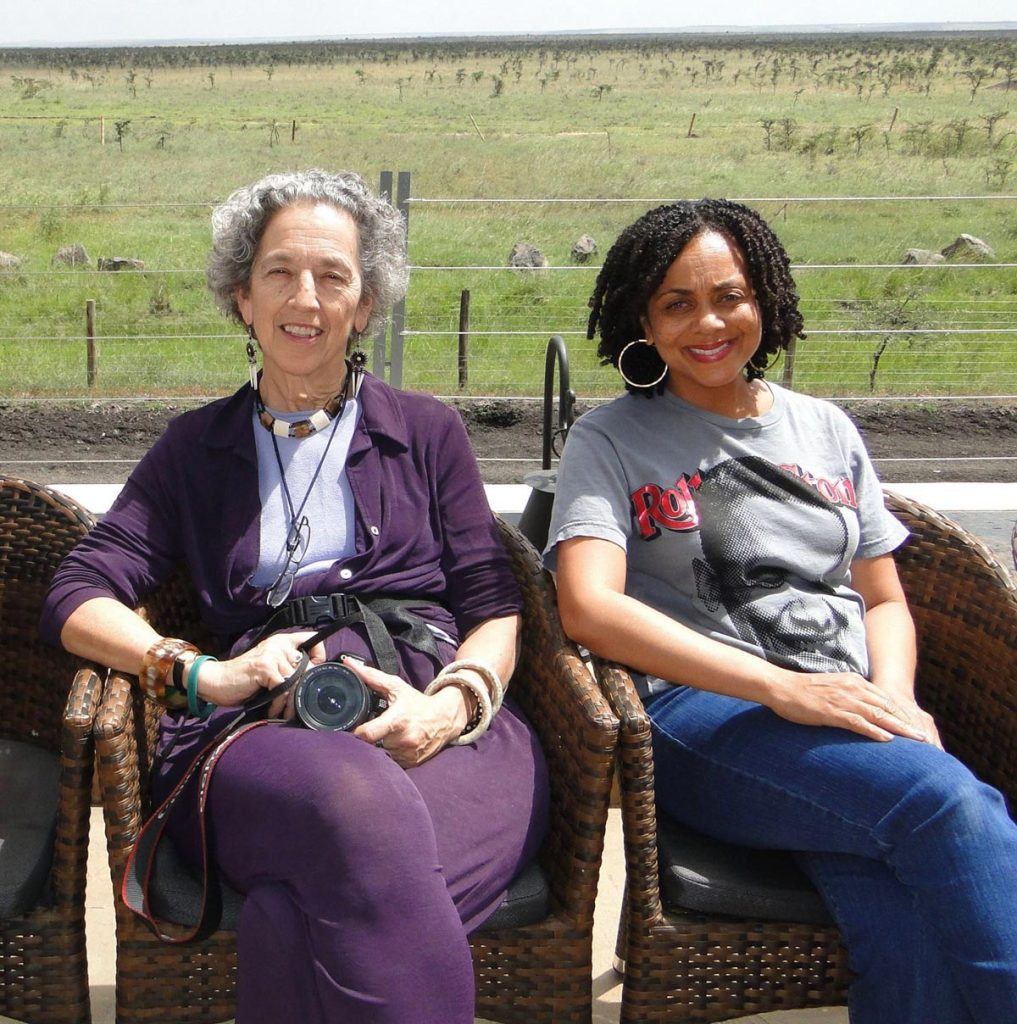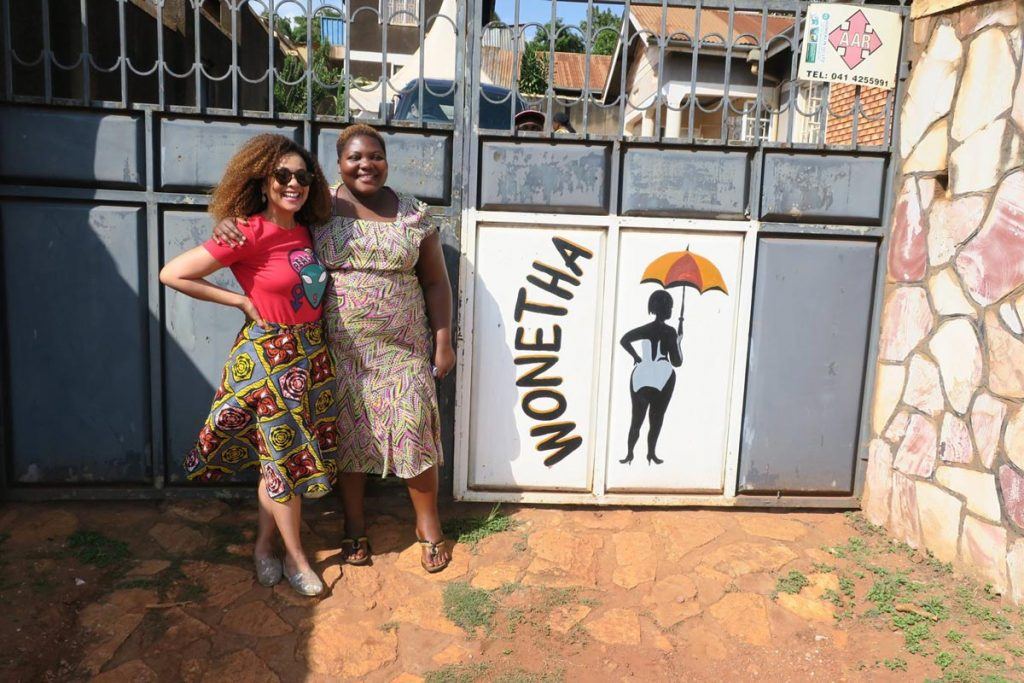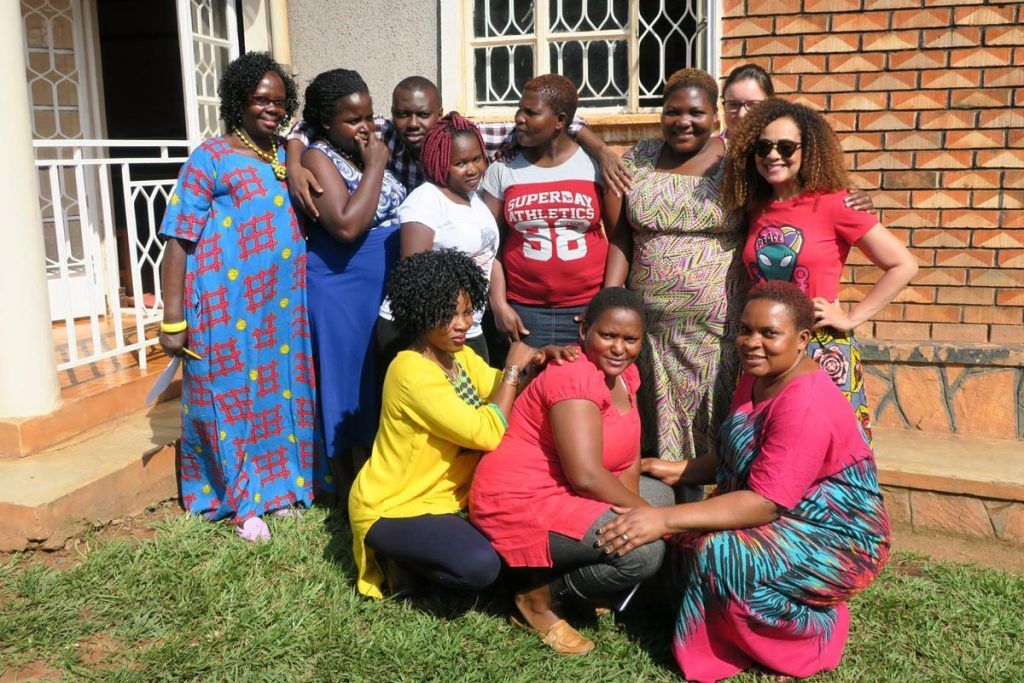Felicia Horowitz, a generous supporter of AJWS, is in Uganda for our Study Tour from February 27th through March 3rd, connecting with grassroots activists who are advancing human rights there. In her guest blog below, she reflects on her decade-long journey with AJWS and on reconnecting with the Ugandan activist who made a lasting impression on her back in 2010.
About 10 years ago, I met Ruth Messinger for the first time. She was impressive. She was CEO of the American Jewish World Service (AJWS) and before that she served 12 years in the New York City Council and 8 years as the Manhattan borough president. Among her numerous accolades, she has been named one of the 50 most influential Jews of the year. She was super accomplished and I was a woman from Compton trying to raise my kids. To this day, I really don’t know why she singled me out and focused her attention my way, but she said: “I want to be your mentor. I want you to join me in my quest for Tikkun Olam — to repair the world. I want you to see the world through my eyes.” Say what? Me? Compton shorty? Repair the world? I’m trying to get my daughter Sophia to dance class. I am not a thought leader. I am not even Jewish. You must have the wrong person.
Ruth was not hearing my hesitation. She pressed further. “Rabbi Abraham Joshua Heschel said, ‘An honest estimation of the moral state of our society will disclose: Some are guilty, but all are responsible.’” She then said: “’Never again’” cannot be reserved for only Jews.” Ahem, are you listening, Ruth? I am NOT Jewish.
Ultimately, after several months of this pursuit, I relented and agreed to go on a trip with her in 2010. Ruth selected a journey to Uganda to advocate for the rights of LGBTI people and sex workers. OK, I was not sure that I was signed up for this. I had never even met a sex worker let alone advocated for one, but Ruth was insistent, so I went.

At that time, Ugandan lawmakers were considering introducing legislation that would call for the arrest of people who knew of somebody who was LGBT but did not report them to the police. Members of the LGBTI community were often ostracized or physically abused, and in a few instances, were killed because of their sexual orientation or gender identity. Sex workers faced near constant threats of harassment and arrest by the police.
It was overwhelming, but when I am overwhelmed by a situation like that, I focus on the individual people. It was then that I met Daisy. Daisy was a sharp young, soft-spoken Ugandan woman who was just starting her work with Women’s Organization Network for Human Rights Advocacy (WONETHA). What she lacked in confidence, she made up for in determination. She told me that being a sex worker was not her first choice in life, but it could still be a path to empower herself and, through WONETHA, inspire tens and thousand others to stand up and speak up for their rights. The odds were massively stacked against her, because the police led the way in sex worker abuse and most of the citizens followed. Sex workers were the very bottom of society. I asked Daisy what she needed for WONETHA and she looked at me with the deepest shame in her eyes and said: “All my friends are dying. I need condoms to keep them safe.” I bought them a lot of condoms that day.

Today, seven years later, I went back to visit WONETHA and Daisy. I was hoping that she would remember me, so I was thrilled when I entered the office and Daisy exclaimed, “Fe–LI–SH—AAAA!!”. What happened to that shy woman I knew seven years ago? Clearly, Daisy had grown up. I ran to embrace her and as I hugged her it felt like time had stopped. My friend was right there where I left her, but somehow 100 times more confident than before. Thinking about her transformation, I pulled out my phone to show her some photos that I had taken of her the last time I saw her, so that she could see the world through my eyes.
As we pored over them, a flood of emotions emerged from her, starting with nostalgia, followed by laugher and then, surprisingly, tears. When I asked why she was crying she responded, “People come in and take pictures of me all the time, but I see them delete the photos before they leave the office. In all the time I’ve been here, nobody has ever taken a picture and brought it back. I feel loved by the fact that you kept pictures of me for all of these years.”

As she continued to look at the photographs of us together, she reminisced about the person she was then as compared to how she is today. She reflected on how she had been a somewhat insecure office assistant. I asked her what her position was now and she said: “I have been CEO of WONETHA since 2013.” Wow!!! I was surprised, but not really. Daisy always had it in her, but I was delighted that she really did empower herself. As Daisy put it, “I moved from good to great!” Under her leadership, WONETHA has expanded its membership and they now serve almost 1,000 active members. More impressively, Daisy transformed the relationship between sex workers and police. Determined to improve things, she worked relentlessly to create partnerships between WONETHA and all of the various police departments. Through this work, not only have police stopped abusing sex workers, but they protect them and even train sex workers on safe practices. I couldn’t help but think that we could really use leadership like Daisy’s in the U.S. right now.
After leaving WONETHA’s office, as we drove back through Kampala’s heavy traffic and dusty unpaved roads, I felt immense gratitude for Ruth Messinger. She believed in me in a way that I didn’t even believe in myself. Ruth, thank you for letting me see the world through your eyes. The view is amazing.
AJWS’s work in countries and communities changes over time, responding to the evolving needs of partner organizations and the people they serve. To learn where AJWS is supporting activists and social justice movements today, please see Where We Work.
